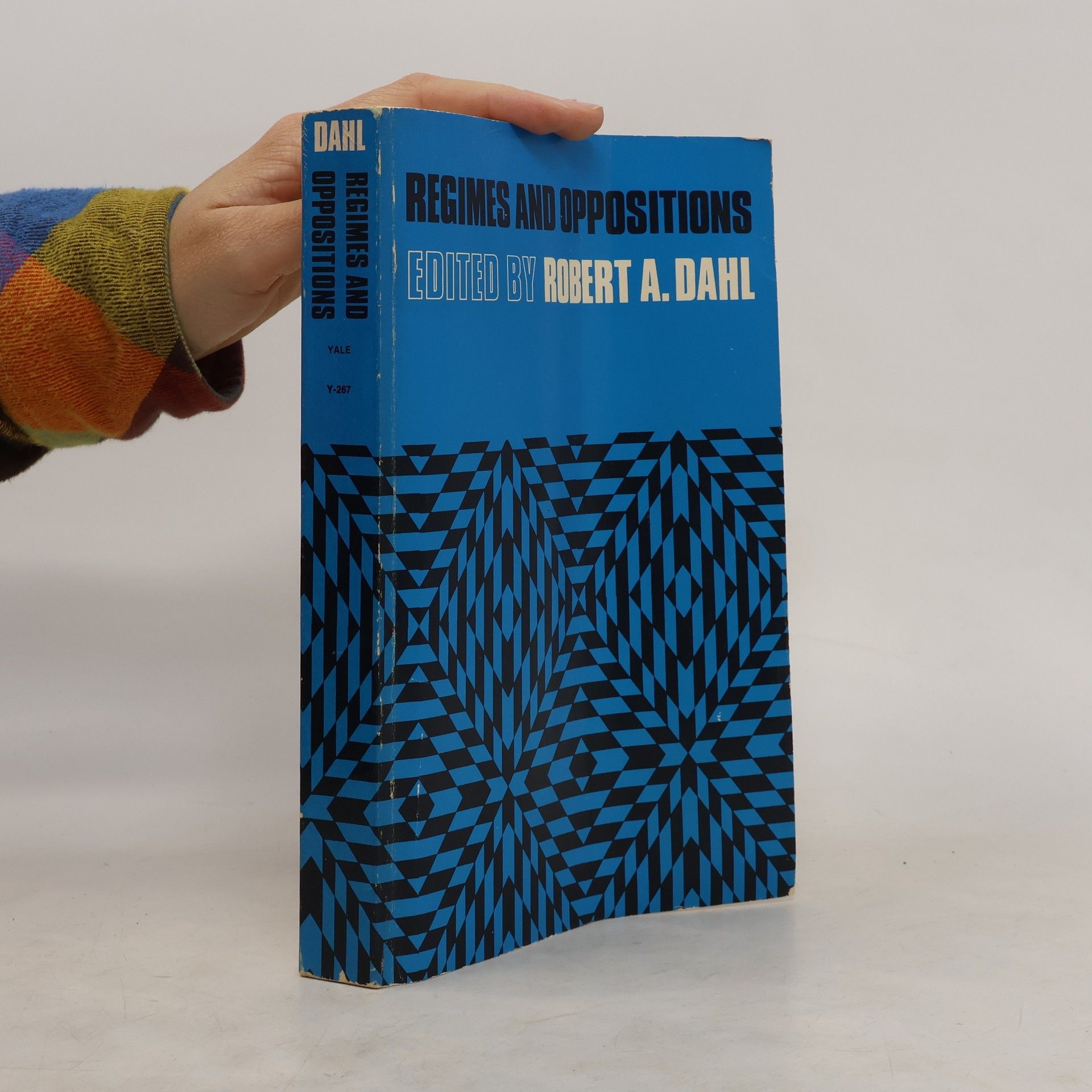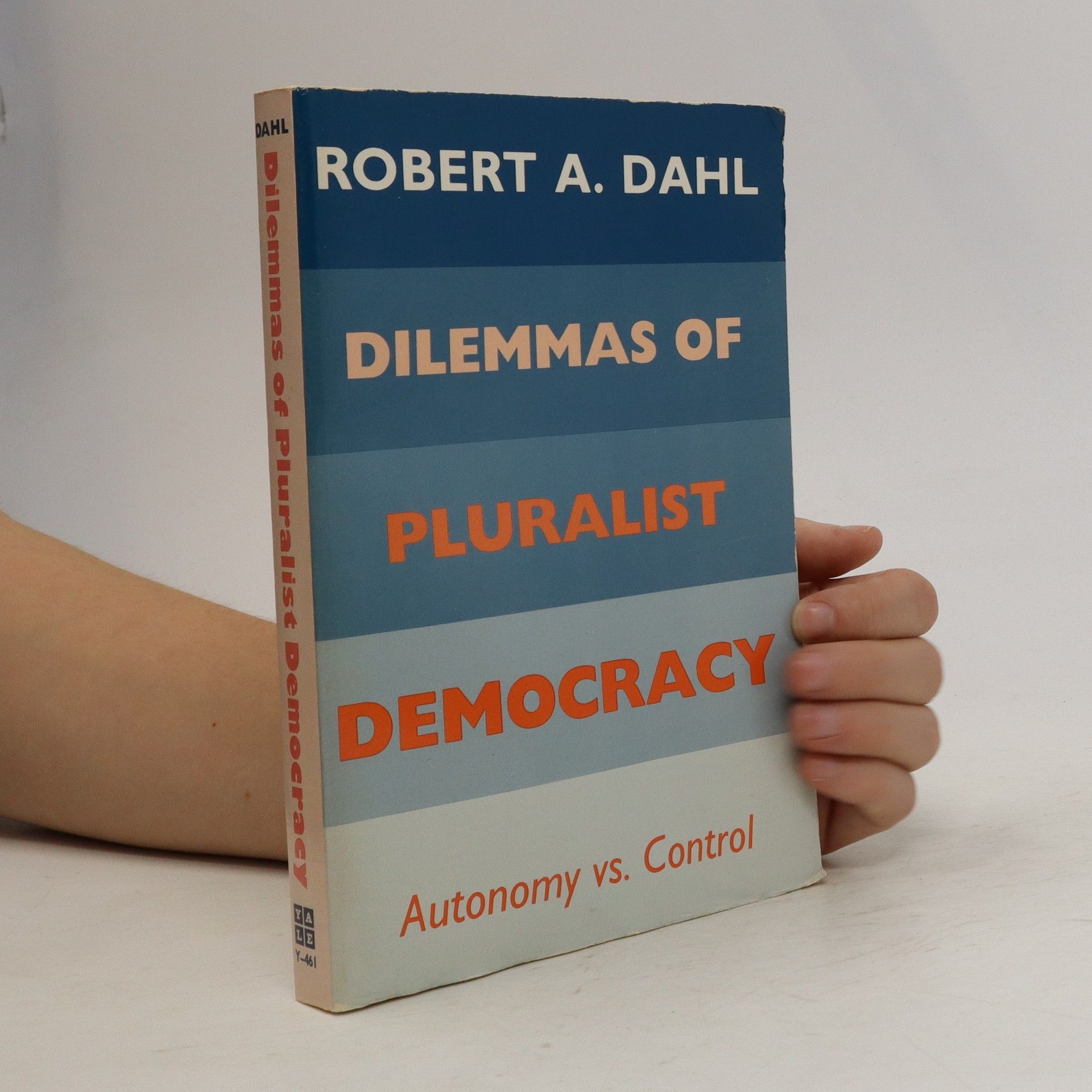On Political Equality
- 160 pages
- 6 hours of reading
This information is insufficient to generate an author summary.






Overview: Written by the preeminent democratic theorist of our time, this book explains the nature, value, and mechanics of democracy. This new edition includes two additional chapters by Ian Shapiro, Dahl's successor as Sterling Professor of Political Science at Yale and a leading contemporary authority on democracy. One chapter deals with the prospects for democracy in light of developments since the advent of the Arab spring in 2010. The other takes up the effects of inequality and money in politics on the quality of democracy, a subject that was of increasing concern to Dahl in his final years
Like individuals, then, organizations ought to possess some autonomy, and at the same time they should also be controlled. Crudely stated, this is the fundamental problem of pluralist democracy. The purpose in this book is to explore the problem of pluralist democracy and some possible solutions.
In this now-classic work, one of the most celebrated political scientists of the twentieth century offers a powerful interpretation of the location of political power in American urban communities. For this new edition, Robert A. Dahl has written a new Preface in which he reflects on Who Governs? more than four decades after its publication. And in a new Foreword, Douglas W. Rae offers an assessment of Dahl’s achievement in this, Dahl’s greatest and most influential book. “Dahl is never dogmatic, and never imagines that the world stands still to accommodate either the democratic ideal or his own pluralistic theory of city politics. . . .Who Governs? is Dahl’s liveliest and most remarkable book.”―Douglas W. Rae, from the Foreword From reviews of the first edition: “A book that no one interested in politics can afford to ignore.”―Lewis A. Coser, Commentary “Anyone seriously concerned with current systematic political theory or with urban politics should read Who Governs?”―Hugh Douglas Price, Political Science Quarterly “A sophisticated and undogmatic treatise on democratic politics.”―Heinz Eulau, American Political Science Review “Dahl has illuminated a central question in political science, the problem of how men can govern themselves in complex societies. . . . Who Governs? will become a classic.”―from the citation of the Woodrow Wilson Foundation Award
This authoritative analysis introduces the key concepts used by contemporary political scientists. Rigorous, concise, and tightly argued, it makes use of everyday and historical examples to illustrate important and challenging conceptual material. KEY Uses the core political phenomenon of influence as a springboard to explaining politics, government, state, political systems, democracy, and the like. Explores the democratic political system and what has been learned about the conditions that facilitate or undermine democracy. Is updated throughout to treat recent developments in world events and political analysis. Discusses the important differences between democratic and nondemocratic systems. For anyone interested in learning more about how political systems and governments work.
Book by Robert A. Dahl
Matilda is a genius. Unfortunately, her family treats her like a dolt. Her crooked car-salesman father and loud, bingo-obsessed mother think Matilda's only talent is as a scapegoat for everything that goes wrong in their miserable lives. But it's not long before the sweet and sensitive child decides to fight back. Faced with practical jokes of sheer brilliance, her parents don't stand a chance. Book jacket.
Una Guía para los Ciudadanos
Madrid. 21 cm. 246 p. Encuadernación en tapa blanda de editorial ilustrada. Colección 'Pensamiento'. Traducción de Fernando Vallespín. Traducción On democracy. Democracia. Pensamiento (Taurus Ediciones) .. Este libro es de segunda mano y tiene o puede tener marcas y señales de su anterior propietario. 8430603425
Publikace amerického profesora politologie na univerzite v Yale. Z obsahu: Zdroje moderní demokracie, Nepřátelští kritici, Teorie demokratického procesu, Problémy v demokrat. procese, Hranice a možnosti demokracie, atd...